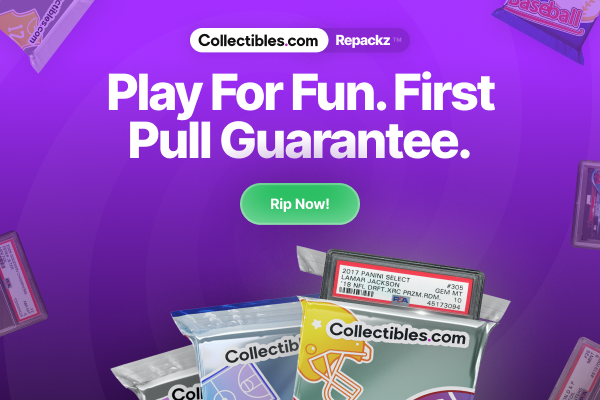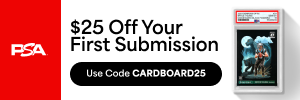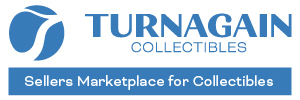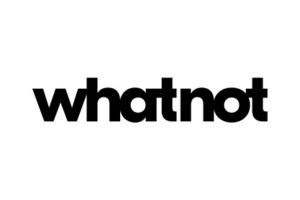
Law of Cards: Panini Responds to Leaf’s Trademark Oppositions
Over the last week, Panini filed documents with the Trademark Trial and Appeal Board (that's TTAB for the cool kids) explaining why it believes Leaf's oppositions against Panini's LIMITED and PRIZM trademark applications should fail.
I slightly agree with Panini on one, and think Panini is dead wrong on the other.
Is PRISMATIC a Trademark?
For the Prizm challenge, the fight is going to be over whether Leaf uses the term PRISMATIC as a trademark.
Panini's argument: "Your honors, Leaf refers to certain cards as being 'prismatic.' 'Prismatic' simply describes what these cards are: shiny and normally limited in number. That's not a trademark use because 'prismatic' simply describes the cards. So, unless Leaf can show that the word has acquired 'secondary meaning,' it loses."
Legal translation: In this context, secondary meaning means when people hear "prismatic" they must think of Leaf.
Back to Panini's Argument: "PRIZM, on the other hand, is a proper trademark use because it refers to our product. It does not merely describe the product's characteristics. And because PRISMATIC is not a proper trademark, it can't block PRIZM. So Panini wins!"
It's a decent argument. Consumers do use "prismatic" to refer to the characteristics of the card. However, there's a rub, what the heck does prismatic mean?
Law of Cards definition of "prismatic": Having to do with prisms or having to do with bright, spectral colors.
Technically, PRISMATIC cards are just shiny cards. They don’t have anything to do with prisms, or really bright, spectral colors. So, arguably, Leaf is using the word PRISMATIC incorrectly.
While Leaf's use of the term "prismatic" might drive an eighth grade English teacher crazy, in the world of trademarks, it's a good thing. If you are using a word wrong, it can't be used to describe the card so, voila, it becomes a trademark use!
Leaf's counterargument, while legally valid, is a little complex, so their attorneys could lose the judges. I can also see Panini developing a good argument as to why the word PRISMATIC actually does describe the cards (prismatic might mean shiny colors) which could refute Leaf's position all together.
Bottom line? It'll come down to experts testifying about, in their expensive expert opinions, if a consumer hears the word PRISMATIC, do they think of Leaf or something else?
Now that I've learned both sides’ arguments (without seeing any evidence), I think Panini does have a slightly better position. It's simple and really requires less proof than what Leaf would need to bring to the table. So, in this instance, I give Panini about a 60 percent chance of winning.
It's probably the right result as well. I mean, Topps didn't file a trademark application on REFRACTOR and a PRISMATIC card is basically just Leaf's version of a REFRACTOR.
(Although I reserve the right to revise this opinion if Topps decides to file and obtain a REFRACTOR trademark, which, now that I think about it -- Topps, go for it. It's worth a shot.)
The Battle for LIMITED
While Panini has a slightly stronger position for PRISMATIC, I've repeated often that I think its LIMITED position is a loser.
Panini's TTAB response doesn't start strong, because it seems to concede that LIMITED is a descriptive term. But, unlike its position about Leaf and PRISMATIC, Panini believes LIMITED has acquired "secondary meaning" so that when a consumer hears it, they automatically think, "Panini."
On this one, I'm giving Panini just a 20 percent chance of winning.
As a consumer, when I think "limited," I think of a card being limited in number. Or a limited edition. Although maybe that's just because I never bought a LIMITED product.
Legal confession: OK, last week, I purchased my first Leaf LIMITED and Panini LIMITED cards to add to my collection of cards involved in lawsuits. But still, when I hear the word "limited," it has nothing to do in my mind with these products.
In its answer, Panini claims LIMITED gained secondary meaning since at least 1994 "via the substantially exclusive and continuous use of LIMITED in United States interstate commerce by Applicant and Applicant's immediate predecessors-in-interest, including Donruss…"
Legal conclusion: Anyone else catch the wiggle word? Substantially exclusive? That's like saying "almost" exclusive. And last time I checked, the words "exclusive" and "almost" do not go together.
It's like being a member of an "almost" exclusive club. Sounds bad, huh?
That just sets up Leaf's (and Topps', and maybe Upper Deck's) inevitable attack against Panini's mark: Hey, you let others use it! That's not exclusivity! You gave it away! And for years others used it! And you didn't say anything about it. But now you want it back? Too late!
I think Leaf has made a winning argument. Not to mention that the word "limited" is pretty generic in the industry too, and generic terms can never be trademarks, even if there is secondary meaning.
So, (again, without seeing any evidence), I think Panini's LIMITED will not be registered.
But, you never know. I thought the Trademark Office would reject Panini's LIMITED application in the first place.
For both cases, we're finally onto the evidence collection phase. That normally takes place off the public radar, so it might be awhile before we get to see each side's proof.
I suspect, however, these cases won't get that far. I expect they'll both settle, at the same time, in about six months. These are interesting issues to fight over, but neither side wants to spend the money to do that.
The information provided in Paul Lesko's "Law of Cards" column is not intended to be legal advice, but merely conveys general information related to legal issues commonly encountered in the sports industry. This information is not intended to create any legal relationship between Paul Lesko, the Simmons Browder Gianaris Angelides & Barnerd LLC or any attorney and the user. Neither the transmission nor receipt of these website materials will create an attorney-client relationship between the author and the readers.
The views expressed in the "Law of Cards" column are solely those of the author and are not affiliated with the Simmons Law Firm. You should not act or rely on any information in the "Law of Cards" column without seeking the advice of an attorney. The determination of whether you need legal services and your choice of a lawyer are very important matters that should not be based on websites or advertisements.
 | Making purchases through affiliate links can earn the site a commission |

































Sorry, comments for this entry are closed at this time.